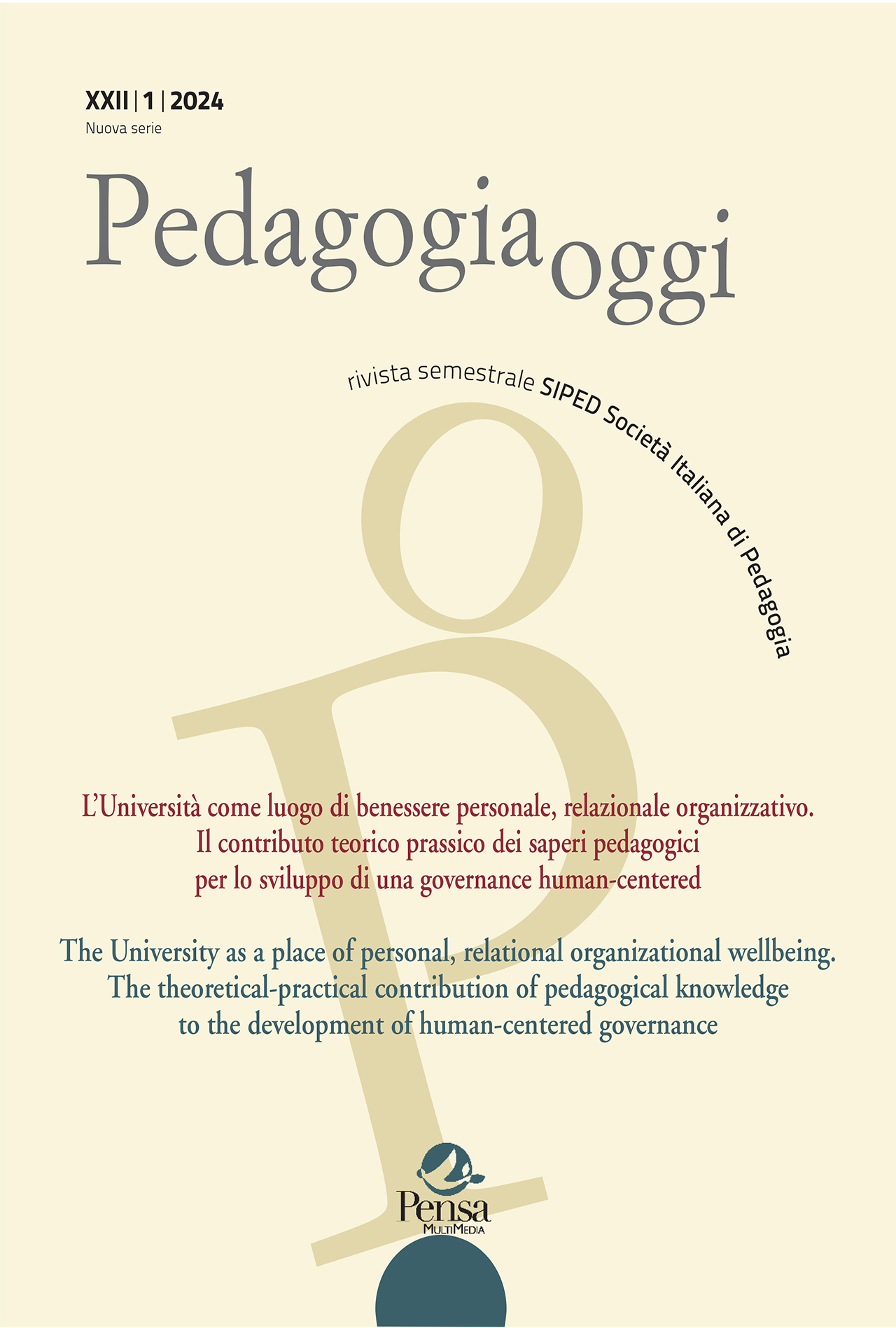Orienting towards well-being, pedagogical implications for “happy universities”
DOI:
https://doi.org/10.7346/PO-012024-11Keywords:
Well-being, Orientation, Happiness, Education, KnowledgeAbstract
Orientation to well-being and happiness draws a key issue for quality education. In this direction, UNESCO recently identified four pillars of the happy schools: people, processes, places and principles. These criteria, hopefully systematic with regard to political agendas, can also be extended to universities, which, by their educational mission, assume special relevance in promoting personal and community development. Happiness and well-being, while broad terms, are qualifying aspects of learning, productivity and engagement. The outlined perspective requires universities to design projects aimed at involving people and territories in order to develop environments with high generative power; pedagogical reflection assumes a decisive role through the elaboration of reflexive-operational devices that, in the wake of the European Commission's Strategic Foresight Report 2023, consider well-being and happiness essential in the production of knowledge. Among these, due to its experiential and reflexive characteristics identify service-learning as a privileged channel.
Downloads
Published
Issue
Section
License
Copyright (c) 2024 Sara Bornatici

This work is licensed under a Creative Commons Attribution 4.0 International License.




